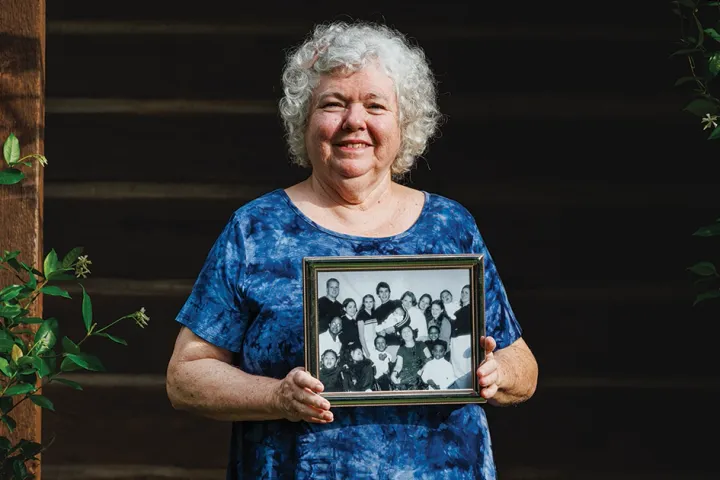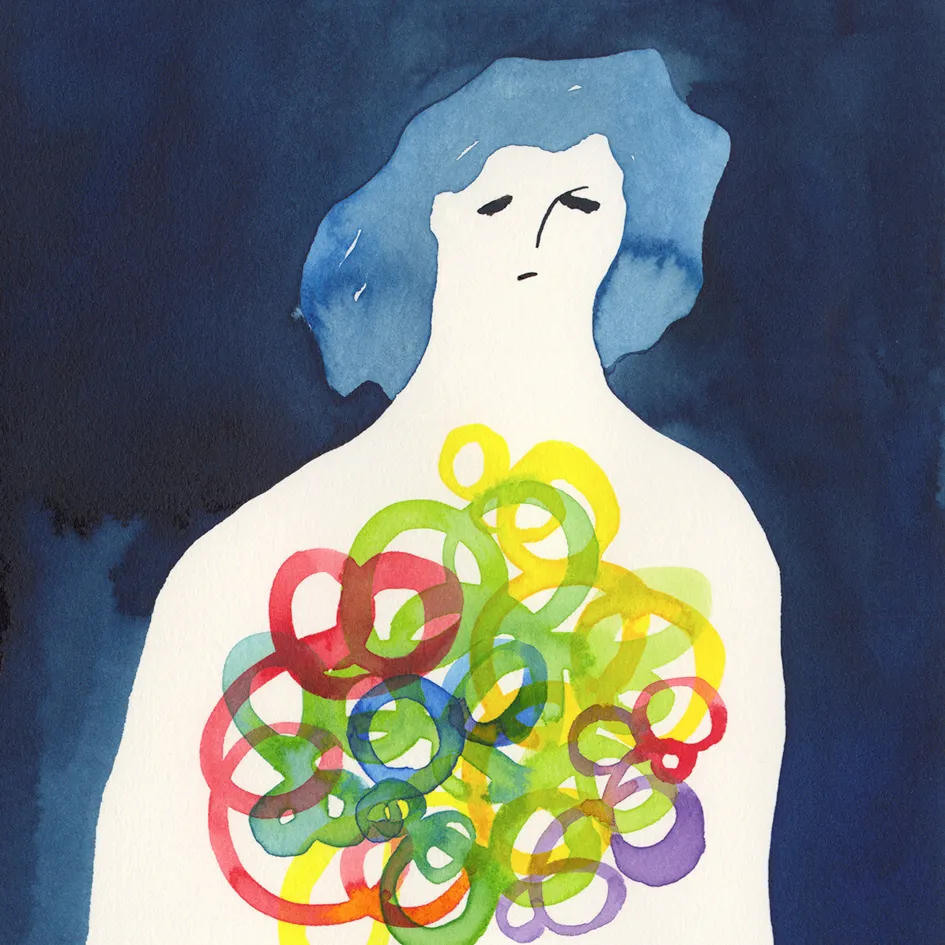It was from the passenger seat of a Kia Soul that I shook my head and pronounced, “I’m not sure Virgil is a Christian.” It was July, and I was in Ontario at the invitation of my new friend Darrin, who’s a chaplain to formerly incarcerated men.
 Illustration by Keith Negley
Illustration by Keith Negley
“Jesus is my Lord,” Virgil told me over coffee at an area McDonald’s, “but I can’t buy into heaven. How can you have billions and billions of people in a place?” I tried to explain what five decades of Bible reading had taught me about the promise of eternal life, only to be told, “You have your beliefs; I have mine.”
Afterward I thought it would be helpful for Darrin to know in what ways Virgil’s faith was insufficient: He should believe better if we’re going to consider him one of us.
I expected to have Darrin’s thanks. There was more work to be done on Virgil, and my exceptional conversational skills had unearthed an important problem. Yet Darrin, with great gentleness, turned the scalpel toward me.
“I don’t think I’ve ever met two people the same, John. We all have our own experiences, which brought us to our beliefs. Virgil is putting his faith and trust in Jesus, but the concept he has of eternity and heaven is different from what we have.”
His response was such a gentle, patient way of looking at Virgil’s growing faith. And it was charitable to me, too. Hungry for the riches of Christ’s work through the covenants, I love a scholarly plunge into Scripture. Too often, however, I elevate head knowledge above the changes required of my heart. Instead, meditatively soaking in God’s Word should lead us to mirror Him. To put on, “as God’s chosen ones, holy and beloved, compassionate hearts, kindness, humility, meekness, and patience …”; to let “the peace of Christ rule in [our] hearts, to which indeed [we] were called in one body. And [to] be thankful” (Col. 3:12-15 ESV). Over the last year, I’ve seen many of these qualities in Darrin. He has a ministry of presence that shepherds people with patience. He has embraced those who often go unseen by our churches—men who’ve had little access to discipleship and spiritual formation, who are only now discovering healthy friendship and community.
It’s given me a conviction that I should believe better. Instead of administering a litmus test for biblical knowledge, I ought to be cheering for those who are receiving the faith. This is the kind of encouragement the apostle Peter gave to believers in the region of modern Turkey, when he wrote, “Though you do not now see Him, you believe in Him and rejoice with the joy that is inexpressible and filled with glory, obtaining the outcome of your faith, the salvation of your souls” (1 Pet. 1:8-9 ESV). Notice how Peter acknowledged the things they didn’t have, while embracing what they did possess.
In a similar way, there’s much we don’t understand about the mysteries of God and His kingdom. Yes, He’s revealed all we need to know—but sometimes it doesn’t feel like enough, and we can’t seem to bridge the gap between facts and faith. This was true for Virgil, and it’s also true for me. I struggle to believe that all my sins are forgiven, especially the ones on repeat. It doesn’t make sense for God to forgive so lavishly without first putting me on a training program, to see if I’ll improve before He pours out His love again. And yet, He does. His grace is just too good to believe. And that sounds an awful lot like Virgil’s incredulity about a place called heaven.
As I took that ride in Darrin’s car, I saw how the peace of Christ rules in his heart. He had a perspective that made him able to see beyond the challenge of the moment to the wholeness Jesus can bring to our futures.
“Virgil is finding so much safety and hope in the church community that he’s in,” said Darrin. “He feels genuinely accepted by the pastor and by the people in the congregation. The Holy Spirit, I believe, works all that out eventually in us. It might be two years, three years, five years—or it could happen tomorrow—where he finally says, “There’s something about this eternal life that I don’t understand. Is it really the way these others have described it?”
In the meantime, the Holy Spirit has much to work out in me. Patiently and gently, He reminds me that knowing Him is the goal of all my learning, and loving others is the work I’m to do until that heavenly day.
Darrin’s gentle rebuke reminded me that, near the end of our conversation at that McDonald’s, Virgil looked at me with a smile and said, “This is probably the best time of my life.” I have a feeling it’s only going to get better.





